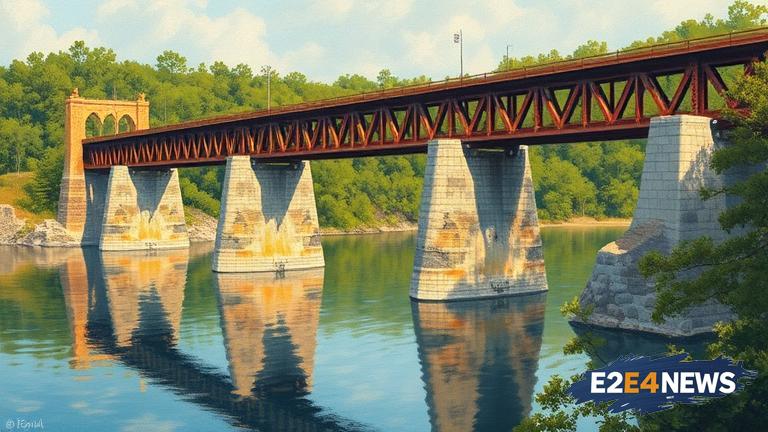The Missouri Department of Transportation (MoDOT) has announced that it is giving away the historic Bull Shoals Lake Bridge, which spans the Bull Shoals Lake in southern Missouri. The bridge, which was built in 1956, is being replaced by a new structure, and MoDOT is looking for a new home for the old bridge. The bridge is being offered to anyone who is willing to take it, free of charge. However, the recipient will be responsible for dismantling and removing the bridge from its current location. The Bull Shoals Lake Bridge is a significant piece of Missouri’s history, and MoDOT is hoping that it will find a new home where it can be preserved and appreciated. The bridge is a steel truss bridge with a total length of 1,284 feet, and it features a unique design that is no longer seen in modern bridges. The bridge has been in service for over 60 years, and it has played a critical role in connecting the communities on either side of the lake. Despite its age, the bridge is still in good condition, and it could be repurposed for a variety of uses, such as a pedestrian or bicycle bridge. MoDOT is encouraging anyone who is interested in taking the bridge to come forward and submit a proposal. The proposal should include a plan for how the bridge will be dismantled and removed, as well as a description of how it will be used in its new location. MoDOT will review all proposals and select the most suitable recipient for the bridge. The deadline for submitting proposals is not specified, but MoDOT is encouraging interested parties to act quickly. The Bull Shoals Lake Bridge is not the only historic bridge that MoDOT has given away in recent years. In 2019, the department gave away the old Route 66 bridge in Springfield, which was also replaced by a new structure. The old bridge was taken by a local company, which plans to restore it and use it as a pedestrian bridge. MoDOT’s decision to give away the Bull Shoals Lake Bridge is part of a larger effort to preserve and repurpose historic bridges in Missouri. The department has a number of programs in place to help preserve historic bridges, including a program that provides funding for the rehabilitation of historic bridges. The Bull Shoals Lake Bridge is just one of many historic bridges in Missouri that are eligible for preservation. The state has a rich history of bridge building, and many of its historic bridges are still in use today. However, as new bridges are built to replace older structures, MoDOT is faced with the challenge of finding new homes for the old bridges. By giving away the Bull Shoals Lake Bridge, MoDOT is hoping to find a new home for the structure where it can be preserved and appreciated. The bridge is a significant piece of Missouri’s history, and it deserves to be preserved for future generations. Anyone who is interested in taking the bridge should submit a proposal to MoDOT as soon as possible. The department is encouraging interested parties to act quickly, as the deadline for submitting proposals is not specified. The Bull Shoals Lake Bridge is a unique and historic structure that could be repurposed for a variety of uses. It is a steel truss bridge with a total length of 1,284 feet, and it features a unique design that is no longer seen in modern bridges. The bridge has been in service for over 60 years, and it has played a critical role in connecting the communities on either side of the lake. Despite its age, the bridge is still in good condition, and it could be used as a pedestrian or bicycle bridge. MoDOT is hoping that the bridge will find a new home where it can be preserved and appreciated. The department is encouraging anyone who is interested in taking the bridge to come forward and submit a proposal. The proposal should include a plan for how the bridge will be dismantled and removed, as well as a description of how it will be used in its new location. MoDOT will review all proposals and select the most suitable recipient for the bridge. The Bull Shoals Lake Bridge is a significant piece of Missouri’s history, and it deserves to be preserved for future generations.
